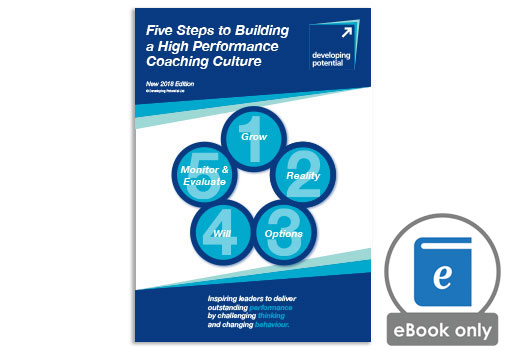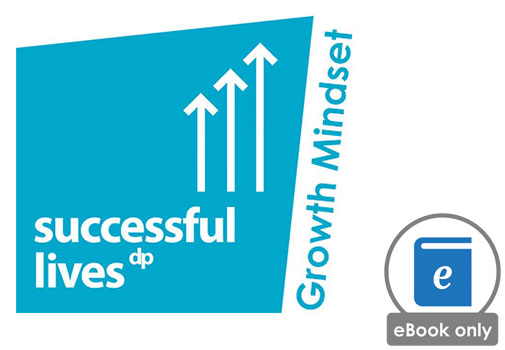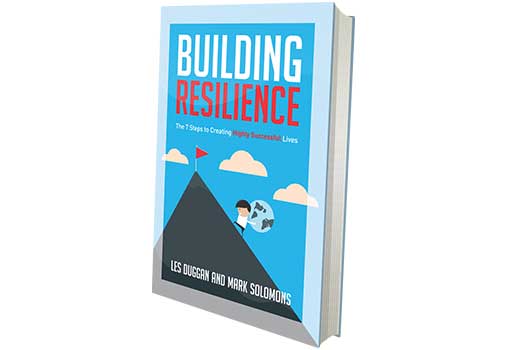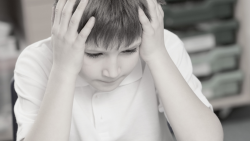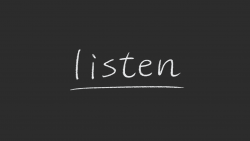
Is Failure the new Success?
Schools are great at celebrating success, but there is a sea change in academic thought that means across the sector a more positive attitude is developing towards failure.
In the world of business there is a common refrain; that every successful business person has at least one failure behind them. Bill Gates set up a tech business that went nowhere, he then went on to form Microsoft. Henry Ford formed two motor companies that went broke, before forming the Ford motor company. He went on to say, “The only real mistake, is the one from which we learn nothing.”
Many of us can tell personal stories. My sister and brother lost their houses in a business, before both going on to more recent fantastic business successes.
And then there are the students who “failed” at school but went on to achieve great success in life. I’m sure many readers will have heard that Thomas Edison was told he was ”stupid” by his teacher in school. He was fired from his first two jobs for being “non-productive”. As an inventor, Edison made 1,000 unsuccessful attempts at inventing the light bulb. When a reporter asked, “How did it feel to fail 1,000 times?” Edison replied, “I didn’t fail 1,000 times. The light bulb was an invention with 1,000 steps.”
At 16, Einstein failed the entrance examination to the Swiss Federal Polytechnic!
And Winston Churchill failed twice to get in to military school. Sadly, he continued to fail in his decision making. The Gallipoli Campaign in 1915 set the allies back in the war and led to 130,000 deaths. Yet his failings there did not prevent him becoming a great WW2 prime minister.
Carol Dweck and Growth Mindsets
Carol Dweck has studied how young people and adults respond to failure and has developed the idea of people having Growth or Fixed Mindsets. When I came across her book, ‘Growth Mindset’, three years ago, I was immediately struck how my own mindset affected my feelings about failure. It struck me of the incredible power her ideas could have in schools. Since then, I have seen and helped her ideas spread across the education sector. I have seen first-hand how the idea of Growth Mindset has helped to improve children’s approach to their learning.
Carol Dweck describes two types of belief systems that can lead to very different learning experiences. A person with a Fixed Mindset believes that intelligence and other talents are for the most part innate. There is little one can do to change one’s underlying intelligence. However, those who have a Growth Mindset believe that intelligence and other qualities can be developed and changed through learning.
Responding to Failure
A child’s (or adult’s) mindset will greatly affect how they respond to failure.
A person with a Fixed mindset when failing can internalise that failure and think there is something wrong with them. They will be disinclined to try again because they think the failure says something about their innate abilities. Moreover, they may well avoid trying to do things that are new and challenging because of the inherent risk to their esteem
However, those with a Growth mindset will be more inclined to accept challenge, as they believe that their innate being is not determined by their success or failure in that challenge. Moreover, a mistake provides opportunities for new learning to take place.
Jo Boaler and Mathematical Mindsets
Jo Boaler has written extensively as to how this effects how we teach Mathematics in schools. She argues for a more creative Mathematics curriculum, with more emphasis on the process, rather than the answer and a celebration and investigation of mistakes.
Her book ‘Mathematical Mindsets’ quotes research carried out in 2011. The research shows that neural sparking occurs each time the brain makes a mistake, meaning the brain can grow when challenged. The increased brain activity was more prevalent for students with a Growth Mindset.
And Carol Dweck’s research shows that students with a Growth Mindset make faster and more sustained progress in school than those with a Fixed Mindset.
But aren’t our Mindsets Fixed?
Aha! You may ask: but doesn’t your blog about students having a Fixed or Growth Mindset, indicate that the mindsets themselves are fixed?
Happily it is possible to develop and change a person’s mindset, as it is a belief system. This was shown in a study carried out by Dweck and her colleagues in 2007.
Carol has set up “Brainology” courses for students so that they learn to think in a growth orientated way. Most importantly, however, is the language we use when talking with children. For example, instead of saying “You did that sum well, how clever you are!” You may say, “Well done with the way you approached that question.”
Instead of saying “Jack is a great artist,” say “Jack has developed his skills in line drawing and can develop further by working on new pencil strokes.”
The Mastery Curriculum and Growth Mindset
The move away from National Curriculum levels to Mastery learning can be supported by developing concepts of Growth Mindset in school. For example, at Hiltingbury School near Southampton the “Learning Ladders” method of showing progress has been developed. Objectives from the English and Mathematics National Curriculum are set out as rungs on ladders.
What is important isn’t which particular “rung” a child is on the learning ladder but the steps to be taken to reach the next stage. Children are encouraged to know that a mistake is part of the learning journey, and that every child’s journey is unique.
The move away from levels thus provides an opportunity to avoid the labelling that is associated with calling a child a “5C” or a “2B” etc. This labelling can encourage the development of a Fixed Mindset. Instead there is focus on what it is the child needs to be learning, depending on what they actually are able to do or not do, and what needs to change so that the child can make the next step.
So let’s celebrate failure!
Final Thoughts on Growth Mindset
I’ve hinted at some of the implications as to how we teach our children and below I wish to reiterate and add:
- Use the language of Growth Mindset. Don’t praise someone as being “good,” bad,” “clever” or “stupid”, but praise the process. E.g. “That effort at using adjectives helped you produce a great description of the giant”.
- Know that every child can achieve well with a positive mindset, grit, and high quality support.
- Focus on where each child is in each topic, in terms of what they know and don’t know rather than a level.
- Provide opportunities for children to take risks with their learning and make mistakes. In Mathematics, Jo Boaler has set up a website called youcubed.org with ideas for a more creative and Growth Mindset orientated Mathematics education. Develop a ‘no wrong answer’ culture in the classroom.
- Celebrate new learning of children in your class. Celebrate their successes but mainly the process by which they arrived at them.
- Know that it is possible to do better at what you do as a teacher or a leader. You too make mistakes. Take time to reflect on them. Celebrate them and learn from them.
Continue the Conversation on Growth Mindsets
For more information on Growth Mindsets and Failure as the new success, keep an eye on the Focus Education blog, find me on Twitter @Poppereducation or get in touch with the Focus Education office on 01457 821 818.
Ross has more than twenty-five years’ experience in the education sector, the bulk of which has been in leadership and consultancy, both in Britain and Internationally. He has led transformational projects in schools and academies, improving teaching and learning by overhauling how data is used, restructuring how the organisation works, and by developing the curriculum to improve attainment.


